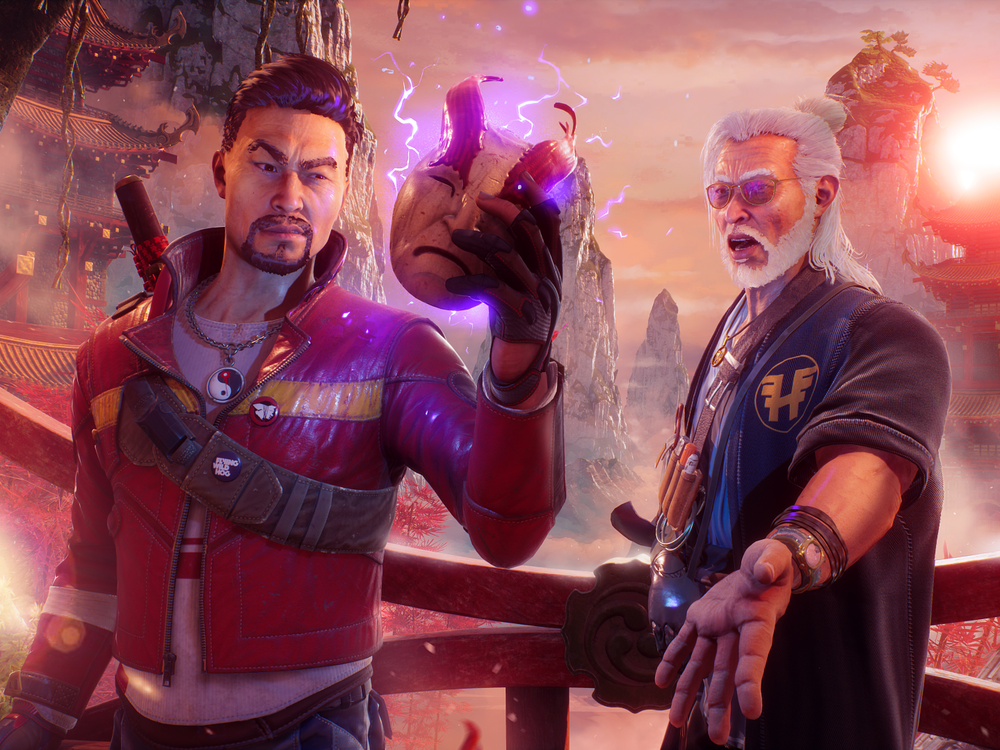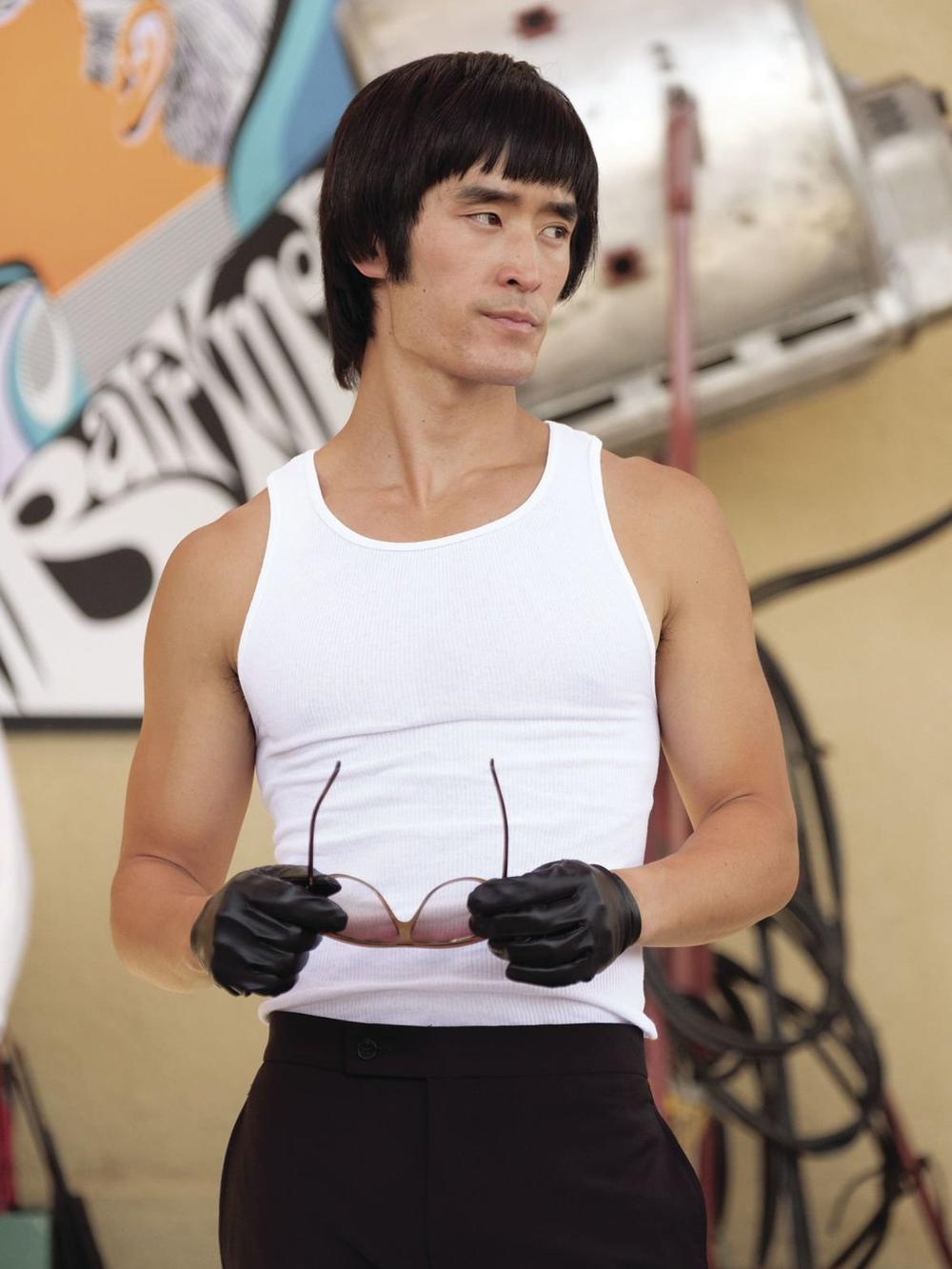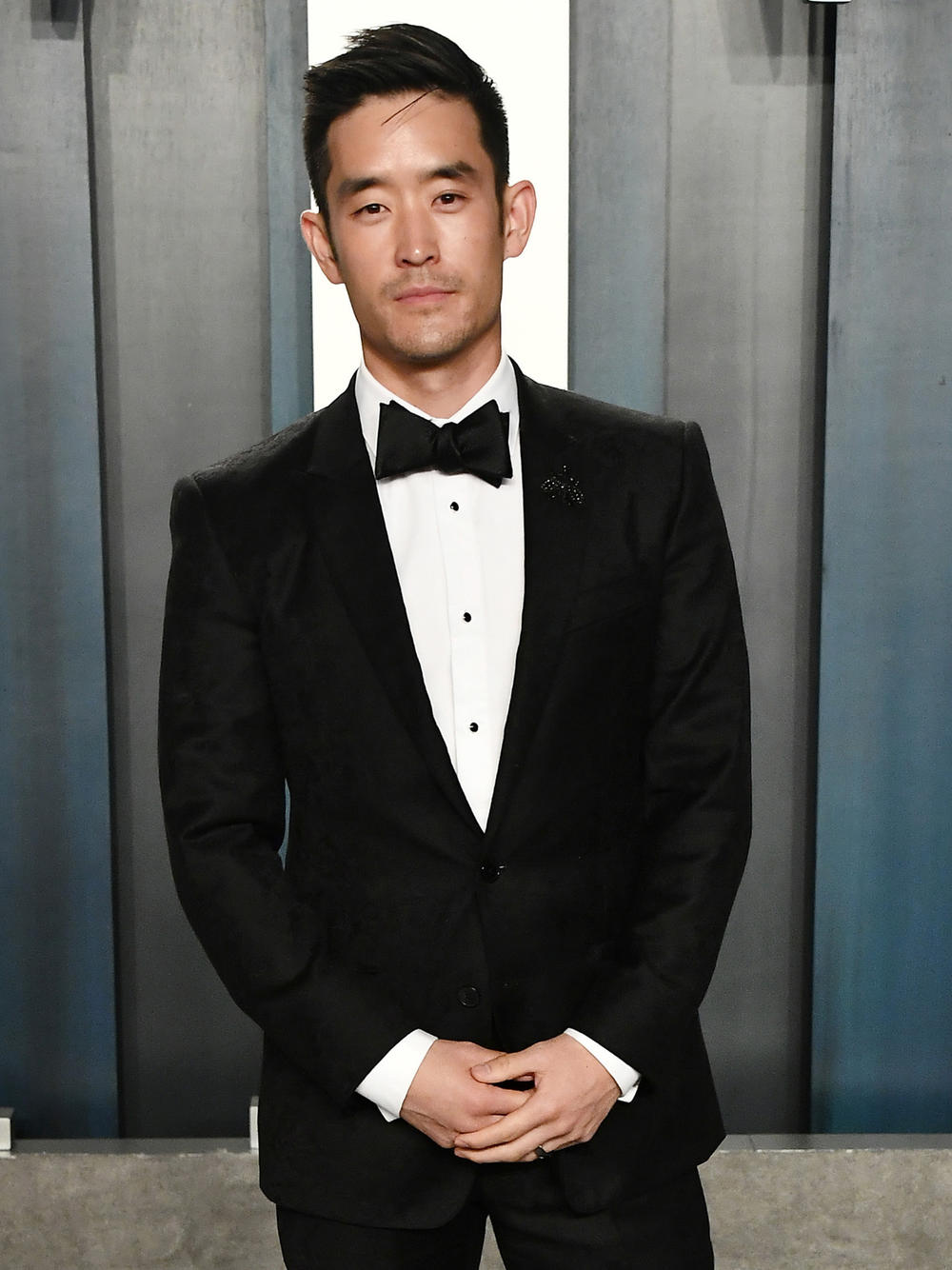Section Branding
Header Content
'Shadow Warrior' tries to mend its flawed history with race by recasting its hero
Primary Content
Shadow Warrior 3 is the latest in a series of blood-soaked action games following assassin Lo Wang. It's got plenty of gunplay, sword fights, and fantastical monsters, but for the first time in its 25-year history, it now features an Asian actor to voice its Asian protagonist. For years, Lo Wang was played by Jason Liebrecht, a white man, but for this title, publisher Devolver Digital and developer Flying Wild Hog tapped Hollywood actor Mike Moh for a more authentic cultural portrayal.
The change doesn't come in a vacuum. Video game studios have had to pay more attention to how they cast characters of color. Bethesda and Tango Gameworks noted how casting for its Asian main character in the upcoming Ghostwire: Tokyo was crucial to getting its setting right. Capcom also cast Europeans of Asian descent to voice the English version of The Great Ace Attorney Chronicles, which takes place in London but revolves around Japanese leads.
For its part, Shadow Warrior has a long, complicated relationship with its Asian-inspired setting. The original 1997 game was criticized for offensive racial humor. However, when the series was rebooted in 2013, both Devolver Digital and Flying Wild Hog turned a new page. "One thing we did take out was a lot of the cheap jokes that had a lot of racial stereotyping and kind of sexist jokes," explained Nigel Lowrie of Devolver in an interview with Engadget, replacing them with "a little smarter comedy than the cheap ones that were in there."
Nine years later, the series is taking another step. After working with Jason Liebrecht for years, Devolver decided to recast Lo Wang, telling PC Gamer that they wanted to correct "our mistake of casting a voice actor inconsistent with the hero Lo Wang's cultural background." Scrapping early recordings with Liebrecht, they brought in Mike Moh, best known for playing Bruce Lee in 2019's Once Upon a Time... in Hollywood.
Discussions about casting began as soon as Shadow Warrior 3 entered production. Devolver Digital and Liebrecht discussed how to recast the role — he understood why the publisher wanted to go in a different direction. Other actors have also stepped down from reprising roles to make room for people of color. Recently, Erin Fitzgerald, who voiced the fighter Ramlethal in the Guilty Gear franchise, gave up the part so she could be more appropriately voiced by a Black actress.
"[Liebrecht] was awesome in what was a difficult situation for him and we of course paid his full contract for the work he had done and would have done for the game in the future. We 100% want to work with him again in other games — he's great," says Lowrie. "The casting process took a bit longer than we anticipated but obviously we're very happy that we did and with how well Mike took to the role."
Finding a new voice
Moh first auditioned for Shadow Warrior 3 via a self-recording before doing it again on Zoom during the peak of the COVID-19 pandemic. It was his first video game role. Devolver chose Moh because he evoked the same "semi-clueless but always enthusiastic" energy that Liebrecht had imbued in the character. "While Mike obviously brought his own voice and riff to Lo Wang, he was also able to maintain the character's tone and personality established over the last two games from Flying Wild Hog," says Lowrie.
A gamer himself, Moh was already familiar with Lo Wang, having played the 2013 Shadow Warrior reboot. But rather than mimicking Liebrecht's performance, he was given full freedom to develop his own take. He used his impression of Bruce Lee as a starting point, mostly referencing Lee's charisma, accent, pacing, and tone.
"I wanted to give his voice the bravado of Bruce Lee mixed in with the sass and wit of Deadpool," Moh explains. But he didn't want to simply repeat his performance from Once Upon a Time... in Hollywood. "Ultimately, my goal was to create a fresh new voice for Lo Wang to go with his new look without straying from the original voice actor."
"Devolver and Flying Wild Hog always let the voice actors drive a bit of the role for themselves to find something that they feel good about while nailing the tone we want for the character," Lowrie explains. Devolver gave Moh references to the older games, as well as to situations and conversations that Lo Wang had in them. That way, Moh could get familiar with Shadow Warrior's comedy as well as its more serious and somber scenes.
Lowrie says, "while humor is what the series is known for with actor performances, the new game continues what the first games established with some real emotionally meaningful moments which we think Mike really helped bring to life." Moh echoes this, saying that he wanted to convey this human element most. Underneath Lo Wang's sarcastic, badass exterior lies a person with vulnerability and heart.
While they recast Lo Wong to ensure a more authentic fit, Devolver also wanted to find someone who could stand out. Beyond cutscenes, Lo Wang's charm comes through his memorable banter and wily insults throughout the Shadow Warrior franchise. Moh mentions that he was surprised at how many lines he had license to improvise while recording.
Moh is thankful for the efforts that both Devolver Digital and Flying Wild Hog took to let Lo Wang be in on the joke as opposed to being more of a played-out stereotype. "I also appreciate how passionate the fans of this series are and how loyal they are to the series," Moh explains. "I understand you cannot please everyone, especially when making a big change like this, but I am grateful for all the people that have welcomed me into the fandom."
George Yang is a columnist for Join the Game and a freelance writer specializing in video games and culture. Find him on Twitter: @yinyangfooey
Copyright 2022 NPR. To see more, visit https://www.npr.org.




